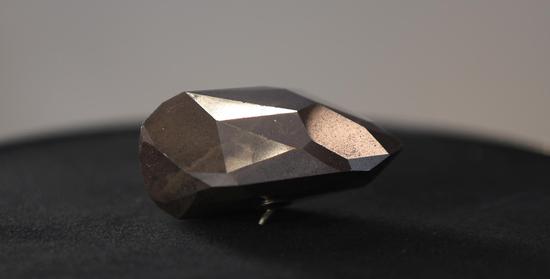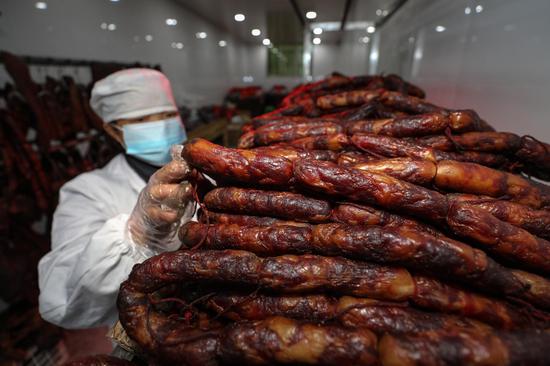Chinese scientists have developed ultra-flexible wood composites that are fire-resistant, mildew-proof and can withstand thousands of folds.
The wood material, a kind of renewable natural resource, keeps long-term flexibility at minus 40 degrees Celsius to 50 degrees Celsius and cannot be ignited by an open flame up to 400 to 500 degrees Celsius, according to a study published recently in Cell Reports Physical Science.
Also, the wood composites maintain their original appearance, with an up to 100 percent anti-mildew rate at room temperature for 75 days at a relative humidity of about 90 percent, while the surface of the untreated wood is completely infected by mildew, according to the study.
The scientists from Hainan University and Southwest Minzu University immersed low-density balsa wood with a thickness of two to five millimeters into a mixture of alkaline liquids at 100 degrees Celsius for 12 hours in order to remove its rigid lignin matrix from the cell wall.
Then, they filled the wood with a modified hydrogel based on polyacrylamide, which provided the materials with excellent flexibility, moisture retention and flame resistance.
The study also showed that the wood composites can withstand 1,000 folds with a 180-degree bending angle or vacuum dehydration at minus 60 degrees Celsius for 24 hours.
The easy-to-industrialize preparation method offered the wood composites the potential for applications in construction, medical equipment, and stress sensors, the researchers said.


















































 京公网安备 11010202009201号
京公网安备 11010202009201号